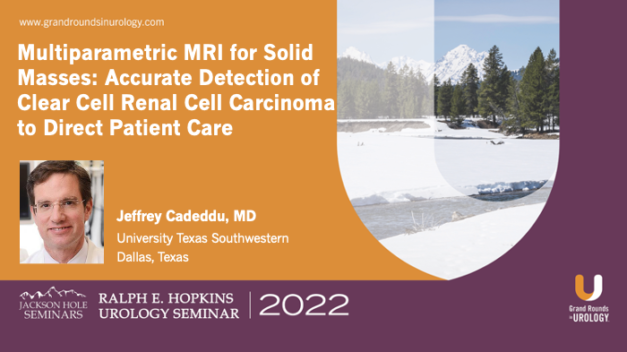Mutliparametric MRI for Solid Masses: Accurate Detection of Clear Cell Renal Cell Carcinoma to Direct Patient Care
Jeffrey A. Cadeddu, MD, Ralph C. Smith, MD, Distinguished Chair in Minimally Invasive Urologic Surgery, Director of The University of Texas (UT) Southwestern Clinical Center for Minimally Invasive Treatment of Urologic Cancer, and Professor of Urology and Radiology at UT Southwestern Medical Center in Dallas, Texas, discusses multiparametric magnetic resonance imaging (mpMRI) for small renal masses (SRM). Dr. Cadeddu emphasizes the use of mpMRI and a clear cell likelihood score (ccLS) as a promising, reliable, non-invasive, and cost-effective means of renal tumor characterization that can eliminate the need for biopsy in most patients.
Read More

